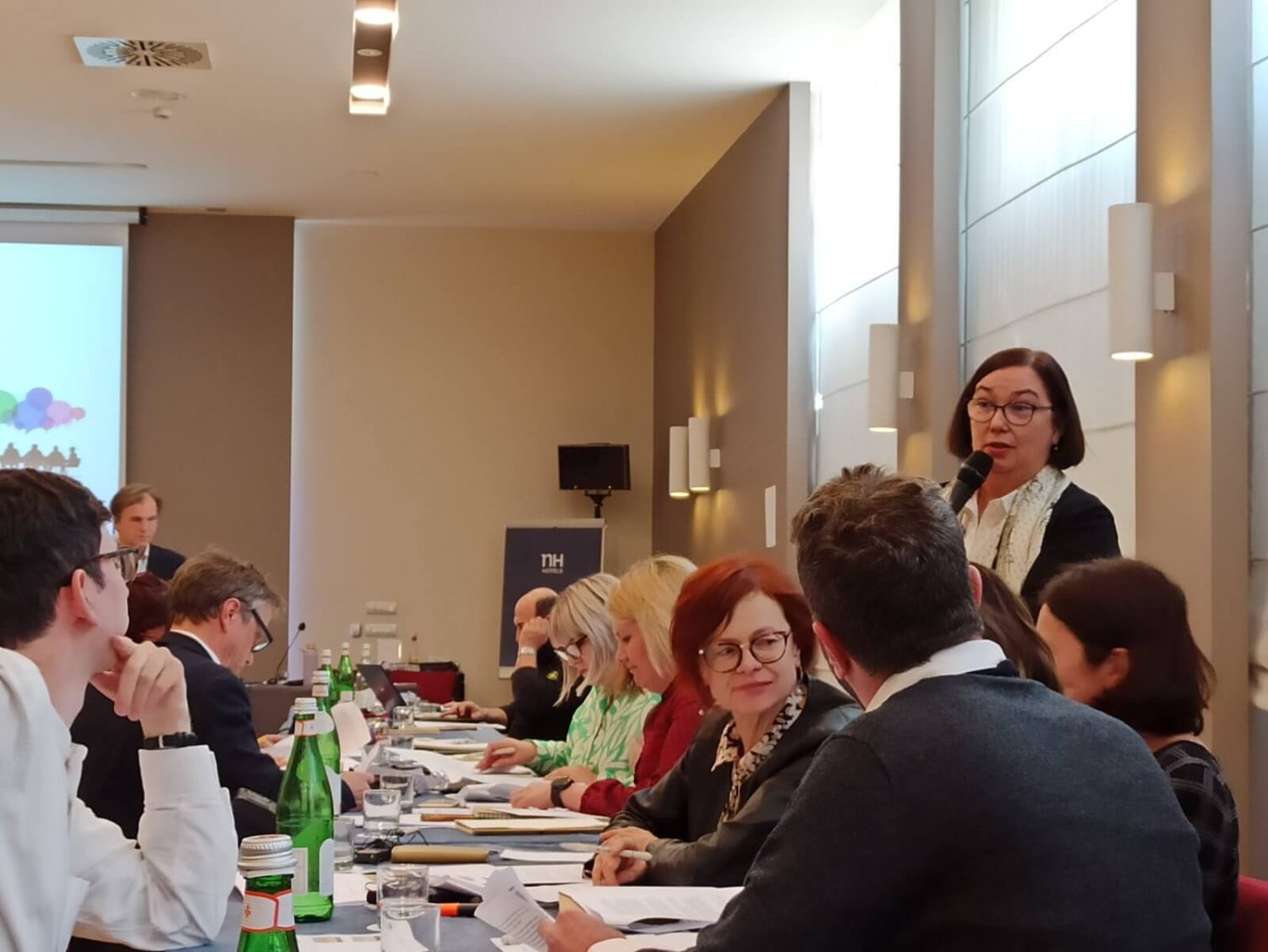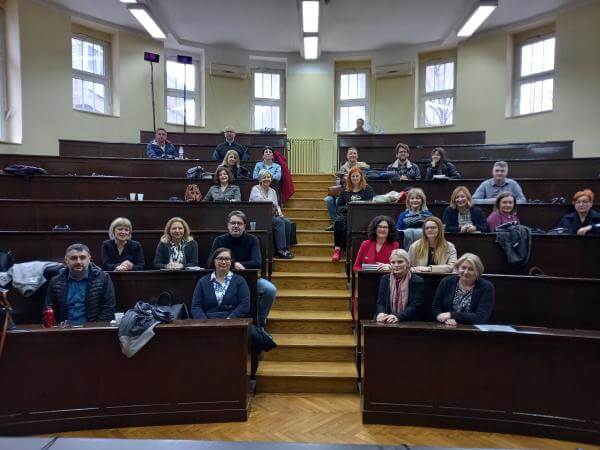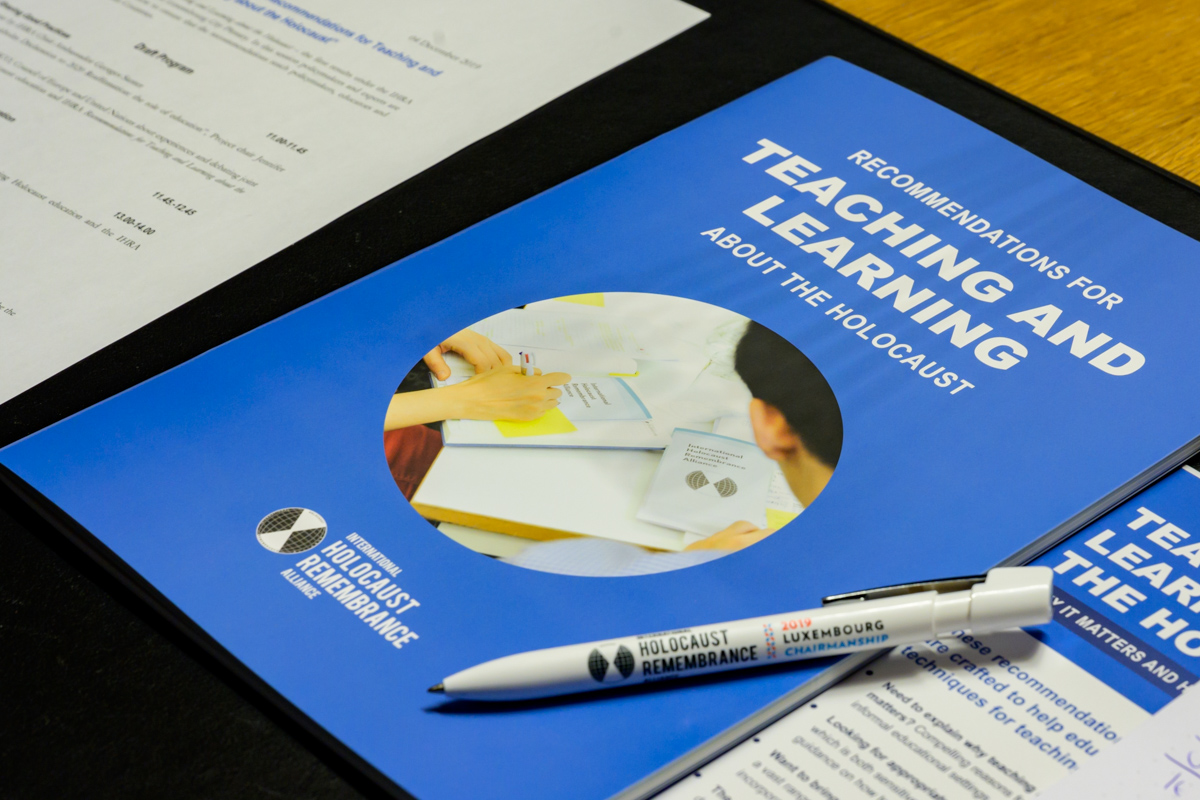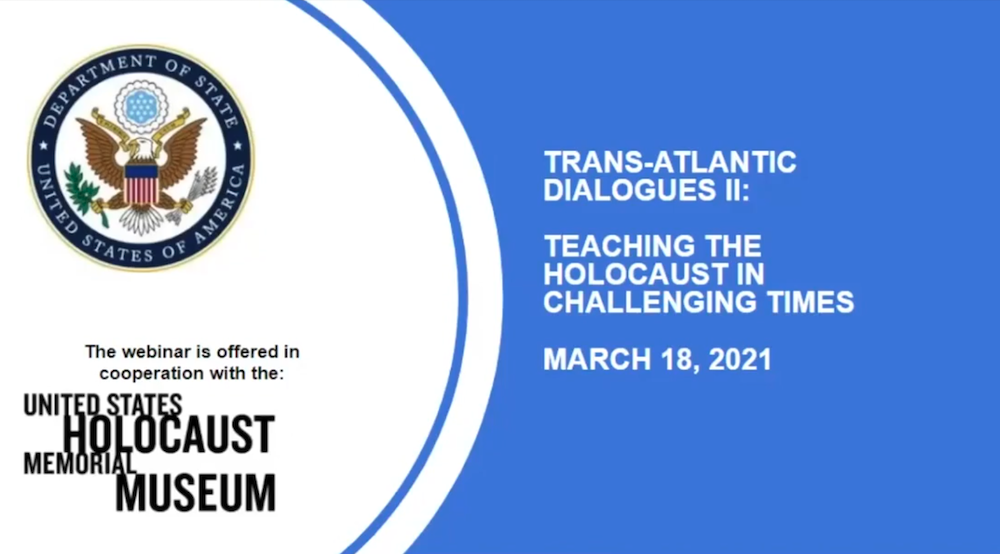


Teachers and the future of Holocaust education
Hosting cross-border educational dialogues to counter Holocaust distortion
Carrying forward the truth of the Holocaust and events surrounding the Second World War amidst a background of rising antisemitic, racist, and extremist discourse across and beyond Europe means having difficult conversations about the past that transcend national boundaries.
The need to protect the facts has intensified and a conscientious education of the truth is one of the most effective ways of countering Holocaust distortion. Teachers are central to this effort.
The Croatian IHRA Presidency has continued international cooperation on the regional level by initiating educational dialogue between countries with diverse and challenging memories, bringing teachers to the forefront in the effort to counter Holocaust distortion. Since 2015, the program Holocaust as a Starting Point, developed by French memorial museum Memorial de la Shoah, has conducted regional-level seminars for primary and secondary school teachers from such countries. The program has cooperated with various civil society organizations and education authorities like the Education and Teacher Training Agency (ETTA) to host recent seminars in Trieste, Italy and Belgrade, Serbia. The seminars prioritized creative ways to teach and learn true Holocaust histories, which is imperative to strengthening the values of today’s youth.
Trieste hosts the 6th Holocaust as a Starting Point regional dialogue
The 6th regional dialogue within the framework of the Holocaust as a Starting Point, focused on ways to teach and learn about the historical complexity of the Holocaust. It was organized by the Mémorial de la Shoah, the Croatian Education and Teacher Training Agency, the Italian Ministry of Education, and the Slovenian Institute of Education. From 29-31 March 2023, lecturers and workshop facilitators joined the dialogue from participating and other various countries alongside international experts and practitioners in Holocaust education, research, and remembrance. Around 40 primary and secondary school teachers of various disciplines from the three participating countries took part in the seminar.
Discussions did not shy away from exploring complex histories. Topics ranged from political violence to artistic expressions around the Holocaust. Professor Raoul Pupo from the University of Trieste held a lecture titled “From the Season of Flames to the Season of Massacres,” on the forms of violence in North Adriatic regions from the Great War to the capitulation of Italy in 1943. Valerija Turk-Presečki, a teacher from Croatia, facilitated the workshop “Eva Fisher: Holocaust in Colors.” Another Croatian teacher, Margareta Đordić, conducted a workshop on the use of film in Holocaust education using “Il Giardino Dei Finzi-Contini,” a movie based on the 1962 novel of the same name.
Participants could also visit the Risiera Di San Sabba concentration camp in Trieste where Jews, Croats, and Slovenes had been tortured and killed during the Nazi era.
Seminar in Belgrade focuses on conflicting historical narratives and new approaches to Holocaust education
A few weeks prior, another seminar was held, this time in Belgrade. As the 9th regional dialogue, the seminar’s workshops enabled participants to gain insight into the “big picture” of events surrounding the Second World War in South-East Europe. Jointly organized by the Mémorial de la Shoah, the Croatian Education and Teacher Training Agency, the Ministry of Education of the Republic of Serbia, and EUROCLIO from Bosnia and Herzegovina, the seminar took place from 7-9 March 2023. Its organization set the precedence for the seminar in Trieste, inviting the same number of teachers from Bosnia and Herzegovina, Croatia, and Serbia, the participating countries. Like the seminar in Trieste, it also hosted a wide panel of experts on Holocaust education from various regions.

The seminar focused on the issue of conflicting historical narratives. Milan Koljanin from the Institute for Modern History, Belgrade, talked about antisemitism during the Kingdom of former Yugoslavia, and Goran Hutinec from the Faculty of Humanities and Social Sciences in Zagreb presented the policy of mass murders in the occupied territory of former Yugoslavia. Milan Ristović from the Faculty of Philosophy in Belgrade gave an overview of Jewish refugee escapes from 1941-45. With its emphasis on having conversations about challenging stories from the past, the seminar was crucial to educational truth-seeking for the Holocaust.
The regional dialogue gave less experienced teachers an opportunity to learn constructive ways to teach about the Holocaust. Based on IHRA recommendations, a workshop on Holocaust education was facilitated by Loranda Miletić from the ETTA (Education and Teacher Training Agency). Another workshop, facilitated by Biljana Ristić and Snežana Vuković from Serbian Ministry of Education, used Cadik Danon’s biography in its session under the Council of Europe Reference framework of Competences for Democratic Culture in teaching History.
The seminar also highlighted new educational themes, including topics like gender-based violence as a weapon of war, as well as the Holocaust in literary histories and fiction, drawing on Bife Titanik, a short story by Ivo Andrić. The Holocaust in fiction workshop was facilitated by Marijo Kosović, a teacher from Zagreb. Finally, the seminar hosted by Dejan Ristić, Director of the Genocide Museum in Belgrade, and Tomislav Dulić from Uppsala University, both experts on the Jasenovac concentration camp, gave an eye-opening presentation on the camp’s history and recent research around it.
The seminar also concluded with an educational site visit, this time to Staro Sajmište and Autokomanda transit camps in Belgrade from which Jews and other victims were taken to killing sites in Serbia.
Sign up to our newsletter to
receive the latest updates
By signing up to the IHRA newsletter, you agree to our Privacy Policy






